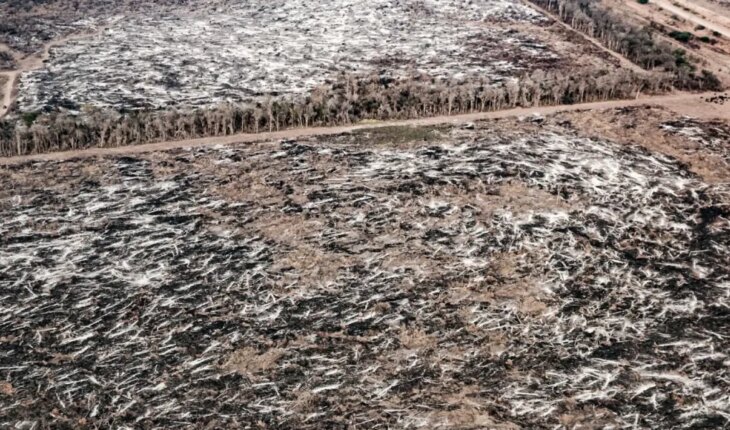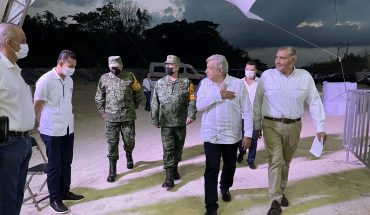The Omnibus Bill, recently sent by the Executive Branch to the National Congress, includes modifications to several environmental laws, such as those on forests and glaciers. These changes put the future of our country’s vital ecosystems at serious risk. Since the enactment of the Forest Law (2007), deforestation has fallen by 40% compared to the previous decade. Thanks to the regulation, 80% of the country’s forests prohibit the authorization of deforestation (Red and Yellow Categories). Environmental impact studies and public hearings must be conducted before clearing land (in the Green Category), and deforestation is not allowed in indigenous territories. However, half of the deforestation is illegal. The fines are not stopping them. In view of this, in 2023, through a Popular Consultation, 99% of a total of 260 thousand Argentines expressed themselves in favor of penalizing illegal deforestation and fires. Photo: GreenpeaceThe proposed amendments to the Omnibus Law will allow provincial governments to authorize deforestation where it is currently prohibited, and bulldozers will be able to raze forests with impunity for agricultural production (soy and livestock) and real estate developments. The law is also defunded, which will have a serious impact on controls on illegal deforestation and forest fires, and on the promotion of sustainable activities in forests. On the other hand, mechanisms for access to information for indigenous and peasant communities will be eliminated. Glacier LawThe National Glacier Law, passed by Congress in 2010, aims to protect glaciers and the periglacial environment. By defining glaciers as public assets, the law seeks to: preserve them as strategic water reserves, protect biodiversity, care for them as a source of scientific information and also value them for their tourism potential. Photo: GreenpeaceA change in the law would be made in order to enable economic activity in the periglacial zone, that is, the environment around the glacier that allows it to exist. The current protection prohibits mining and oil activity in periglacial areas. This omnibus bill eliminates that prohibition, which does not guarantee the protection of a complex environment, which is a safeguard of fresh water and which global warming has already put in check. Federal Fisheries RegimeFrom Sin Azul No Hay Verde they explain that “the proposed modifications to the various articles of the Nac. 24.922 of the Federal Fisheries Regime would generate a direct negative impact on our Argentine Sea. These amendments facilitate the plundering of its essential marine biodiversity and the destruction of its vital and fragile ecosystems. In addition, they make it impossible for the activity to develop sustainably as they imply a serious loss of transparency, control and traceability.” “The proposed amendments would allow the entry of foreign vessels into the Argentine Sea with foreign crews. This would open up the possibility of an excessive exploitation of marine biodiversity, with catch quotas granted by the executive, but with discharges outside national jurisdiction, making it difficult to control the activity. From an environmental perspective, these measures imply an inevitable decrease in the transparency of fishing activity and a stimulus to illegal fishing, a problem that we have faced for years.” Faced with this situation, environmental, social and indigenous organizations launched a petition to save the environmental laws from the modifications proposed in the Omnibus Law, which complements the National Decree of Necessity and Urgency, since it is a gateway to the destruction of forests and glaciers in Argentina. among other ecosystems, and consequently an environmental regression in legislative matters.” In socio-environmental matters, the Omnibus Bill sent by President Milei to the National Congress is a blow to the heart of Argentine environmental protection legislation, since it proposes to liquidate the two laws that cost the greatest citizen effort in the last fifteen years: the Law for the Protection of Forests and the Law on Glaciers. said Enrique Viale, President of the Argentine Association of Environmental Lawyers and the Action Collective for Ecosocial Justice. Under the premise “Save the Environmental Laws”, citizens will be able to sign through the website salvalasleyesambientales.org and thus contribute to stopping the modifications proposed in the Omnibus Law project. To learn more and add your signature, click here…
Forest Law and Glacier Law: How does the Omnibus Bill affect them?
January 15, 2024 |





